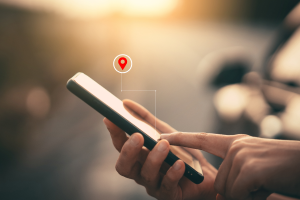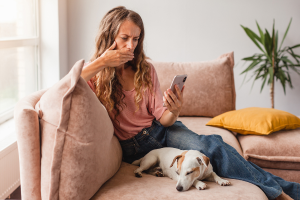After a bad breakup, a scorned ex might channel their frustration with food, crying, or publicly humiliating their ex. In these technologically advanced times, the new trend for those thirsty for revenge is “revenge porn.”
This umbrella term is used to describe any type of explicit content (usually a photograph or video) of an ex-partner posted on social media, blogs, or other online platforms. Fortunately, it’s now a crime punishable by convictions and fines in many places.
This phenomenon has increased alongside our use of mobile devices. While our devices allow us to easily exchange flirtatious photos and videos online, this can also be counterproductive when love ends.
In fact, a 2017 study concluded that 1 in 8 people have been victims of so-called “non-consensual porn,” and that revenge porn affects women and teenagers the most.
This is no surprise, as nearly a quarter of teens and a third of young adults have engaged in some form of sexting.
Photographs and videos are often shared on mobile devices without considering what could happen if someone other than the original recipient had access to them. For example, images or videos sent via text message or shared on social media apps could be deleted by the sender but remain on the recipient’s device if the person downloaded them. Taking a simple screenshot could make the image much more permanent than the sender expected, especially when the love has faded.
A previous McAfee study found that 1 in 10 people have received threats from their ex that they would post compromising images online, and in nearly 60% of cases, these threats were carried out.
In addition, there are websites specifically created to help scorned exes post photos and videos of their exes. Some of these sites even charge victims to remove the photos (posted without their consent).
Fortunately, this alarming crisis has reached the ears of lawmakers and the general public. For example, 46 states in the US now have laws criminalizing revenge porn. There is also a bill proposing sentences of up to five years in prison and a fine introduced in Congress.
Even though progress is being made on this issue, you should always be extremely careful when sharing images and videos using mobile devices, whether they’re intimate or not. You never know how a misplaced image could affect your work, your family, or your own reputation.
Proteja su información privada
To ensure you protect your most private information, you can take some steps against revenge porn, both online and offline.
- Stop and think before you share. Step back and consider the consequences of sharing something digitally. Even if you delete it, information shared online or across two devices never truly disappears. Ask yourself if it’s something you wouldn’t mind exposing to the general public, your boss, or your grandmother. If the answer is “no,” don’t share it.
- Keep your mobile and social media accounts private. Gain greater control over your shared images by carefully selecting who can see them. Social media sites, such as Instagram and Facebook, have privacy settings that allow you to choose who sees your content. Other platforms, such as Snapchat, allow you to share only with the people you choose.
- Don’t post if you’ve been drinking alcohol. We often make bad decisions when we’re drunk. You don’t want what you’ve shared to become an Instagram meme or be shared widely on Snapchat the next day. Be careful and keep your phone habits in check.
- Use basic security measures on your device. Many users still don’t lock their phone or tablet with a PIN or password. These features are especially useful for protecting your privacy if your device is lost or stolen.
- Research the apps you choose to use. One of the biggest problems with mobile apps, like Snapchat, is that users don’t fully understand the limitations placed on their privacy when using them. Research each app before downloading it and be sure to read the privacy policy. Also, keep in mind that even images that are supposedly temporary can become permanent if the recipient takes a screenshot.
- Limit where you store passwords. Allowing an app to remember your password could make it easier for someone else to access your account later. With McAfee® Mobile Security , you can password-protect your social media apps so that even if someone gains access to your mobile device, they can’t use it to post unwanted images online. It also allows you to remotely locate, lock, and wipe your mobile device if it’s stolen or lost.
- Avoid connecting to free and public Wi-Fi networks. Public internet connections are very convenient, but they can leave you vulnerable to cybercriminals who use these unsecured networks to gain access to your personal data.
Even if it doesn’t seem like you’re doing anything risky, you may be more vulnerable than you think.
Looking for more security tips and trends? Follow @McAfee_Home on Twitter and like us on Facebook .










